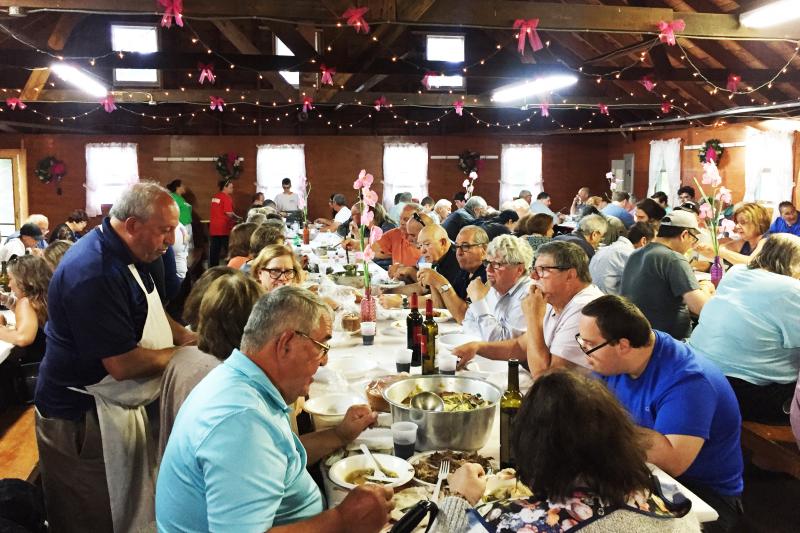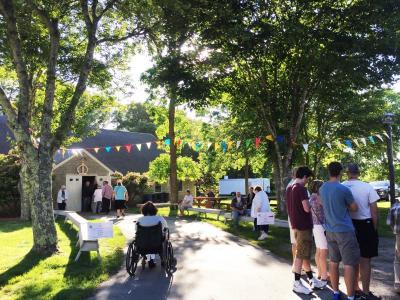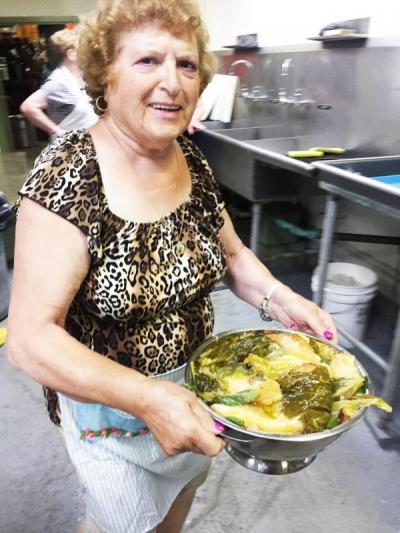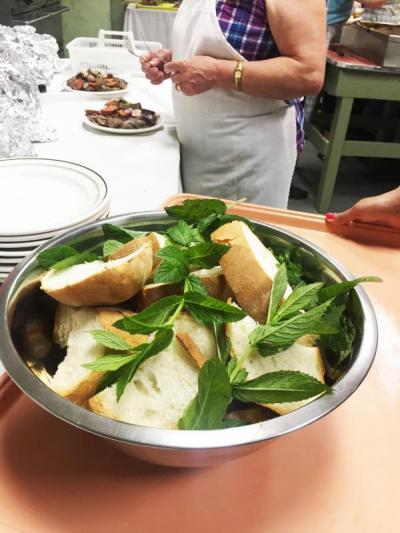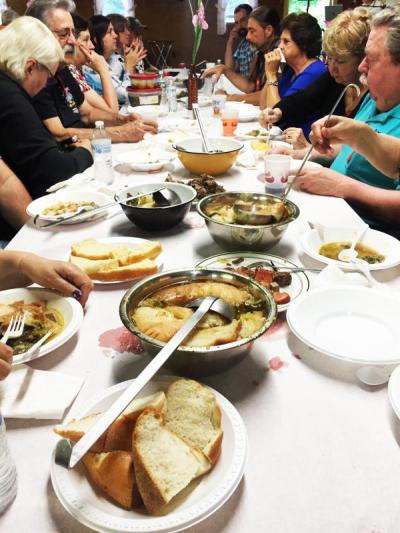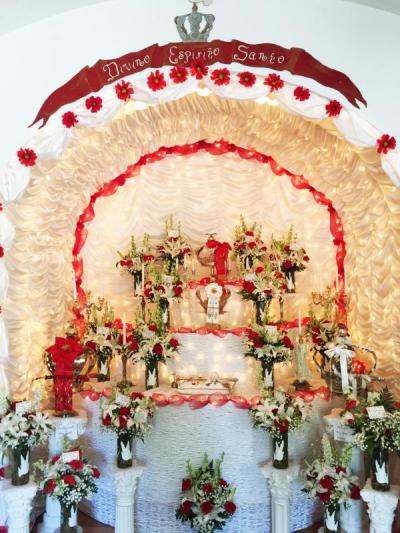Keeping Portuguese traditions with the Holy Ghost Society
Hundreds of people from all over the South Coast arrived at Allen’s Neck Road in the lengthening sunlight on Saturday evening.
Friends and relatives shouted greetings to each other as they walked up to the Holy Ghost Society of Horseneck in South Dartmouth.
They were there to celebrate the society’s 119th annual feast with traditional Portuguese sopas (soup flavored with spearmint), cacoila, sweet bread, and rice pudding as well as other, less traditional food like hamburgers, hot dogs, and ice cream.
Society member Glorinda Dobem was helping in the kitchen.
Alongside other members — including society President Jeff Costa — she was ladling sopas into large metal bowls, piling meats on platters, and ferrying dishes across to the food hall.
They had been preparing for the feast since Thursday morning.
“It’s a lot of work,” she said. “I love it … [But] I don’t do it alone. A lot of people help.”
Originally from the island of Graciosa in the Azores, Dobem moved to Dartmouth fifty years ago, and joined the society 25 years after that.
The Azorean and Portuguese traditions celebrating the Holy Ghost are important to the many immigrants who came here — and to their descendants.
Dobem said that a few years ago they had to cut down the feast from two weekends to just one, because there were too many people and it was too much work.
Now, she said, they don’t have as many people as they used to have. “We used to fill this at least three times,” she said, indicating the food hall packed with more than two hundred people. “Now, we don’t even fill it twice.”
“We don’t sell tickets the way we used to sell,” she added. “The elders are gone, and the younger people don’t want to know anything about this. They’re not interested.”
Leonora Carreiro has been coming to the feast for the past 75 years.
The former Dartmouth resident now lives in New Bedford, but she still comes all the way out to celebrate — in part because of the delicious food.
Both her parents were members of the society.
Carreiro was sitting in the chapel in front of the crown, which was on an altar covered with lights, roses, and red and white decorations for the colors of the Holy Ghost.
“Once they move the crown, they make malasadas down here,” said society member Diane Silvia. “And then after that, we pray every night here in Portuguese for two weeks.”
Silvia explained that the society decides who takes care of the crown by picking numbers.
One society member gets to keep the crown in their house for the whole year. And drawing a number signifies the number of the week — or ‘Dominga’ — that the crown comes to that person’s house out of the seven weeks between Easter and Pentecost.
The society finishes the celebrations with more feasting and a procession with music and costumes, which is scheduled for Sunday, June 16 at 12:30.
“It’s tradition. My grandfather was here when [the society] started,” said Silvia. “I’m the fourth generation. And my grandchildren will be next.”
She added, “It’s a lot of friends, people who see one another — most of them speak Portuguese — and you grow a relationship with them.”
“It’s a nice tradition,” agreed Carreiro.
Silvia and Carreiro told the story of the crown — a representation of that of Saint Elizabeth of Portugal, a queen who smuggled bread to the poor in her apron against the king’s wishes.
When one day her husband demanded to see what she was hiding, she opened her dress and the bread was miraculously transformed into roses.
“We try to keep the tradition going on. And we’re afraid that if we don’t, my mother will strike me dead,” Silvia laughed.



